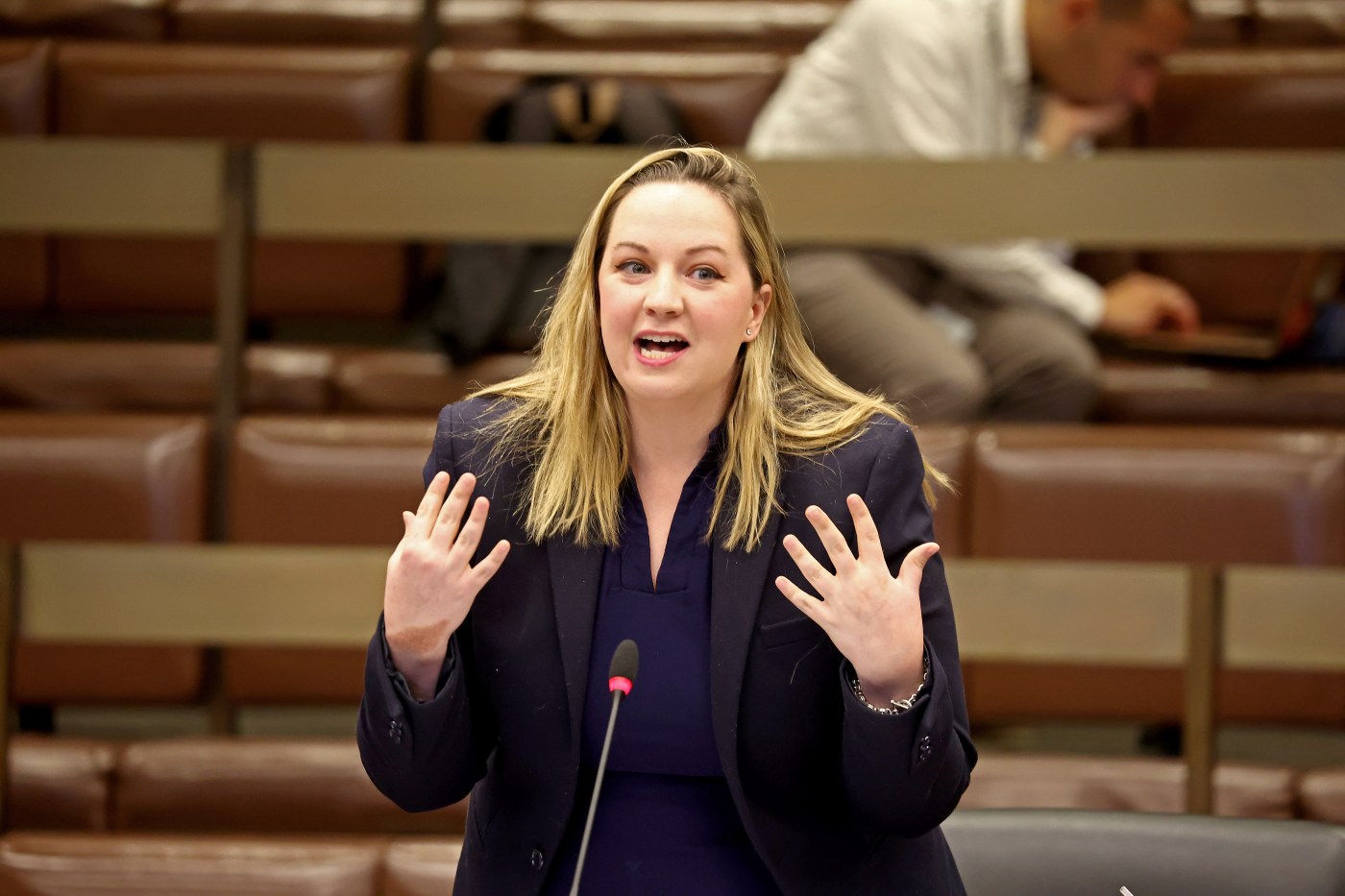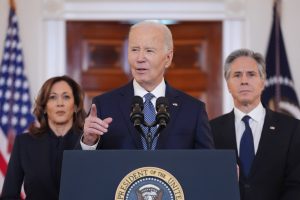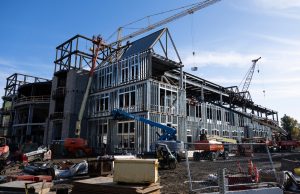
Boston City Council sugary drink tax push met with bitter reception
The Boston City Council plans to discuss the possibility of imposing a new local tax on sodas and other sugary drinks.
Councilor Sharon Durkan introduced a measure Wednesday that seeks to explore the new tax as a means of generating revenue for the city to spend on public health initiatives and discouraging the consumption of sugar-laden drinks that she says have been shown to increase the prevalence of obesity, diabetes and heart disease.
The proposed health-spending sweetener went down bitter for some of her colleagues, however, who raised early opposition.
“Sugar-sweetened beverages are a major contributor to these health issues, and offer high sugar content with no nutritional benefits, while being aggressively marketed to our youth,” Durkan said. “This is not just a policy to regulate sugary drinks. It’s a step towards a healthier, more equitable Boston.”
A 1 to 2 cent per ounce tax on sugary drinks in Boston, Durkan said, could prevent more than 6,000 cases of obesity, reduce diabetes by 9%, and save more than $90 million in health care costs in the first decade.
At 2-cents per ounce, the tax would add 40 cents to the cost of a 20-ounce iced tea. It would add $2.88 to a 12-pack of ginger ale or other soda.
Durkan put annual revenue for such a tax at $20-$30 million, funds that she said would be “transformational.” The money, she said, could be put toward food literacy programs and youth recreation infrastructure projects, while advancing health equity in a city that, per the councilor, includes a 20-year life-expectancy gap between high- and low-income neighborhoods like Back Bay and Roxbury.
While Durkan placed her argument in the context of advancing equity and improving health outcomes for communities of color who are disproportionately impacted by obesity-related diseases, Councilor Julia Mejia insisted that the new tax would in fact most adversely impact low-income people and people of color.
The tax, Mejia contends, would hit those resident where it hurts the most, their wallets, and has the potential to negatively impact the bottom line for small business owners who sell the sugar-laden drinks.
“In this moment in time, a lot of people of color and low-income people already feel under attack — people are telling them what they can eat, what they can drink,” Mejia said. “I’ve heard from some folks that they feel targeted. Because they’re low-income, you’re going to rise their ability to drink soda.”
Councilors Erin Murphy and Ed Flynn also voiced opposition.
“During challenging times, it’s not the right time to add more taxes,” Flynn said. “We need to support residents and not hit them with as many taxes as we have been. We need to be fiscally disciplined and fiscally responsible.”
Murphy, in a statement released prior to the day’s meeting, said the new tax would “further burden” Boston families who are “already grappling with increased residential taxes and a rising cost of living.”
“It’s imperative that we explore alternative strategies to promote health and well-being without adding financial pressure to our citizens,” Murphy said.
Durkan addressed potential blowback to her proposal when introducing it, saying, “Critics may argue that such a tax is regressive. However, evidence shows that healthcare benefits and reinvestment opportunities in our communities far outweigh the costs.”
A sugary drink tax, also known as a sweetened beverage tax, was one of the revenue diversification strategies recommended by the Boston Municipal Research Bureau, a fiscal watchdog group, in a November report that homed in on ways the city could look to reduce its budgetary reliance on property tax revenue.
The Research Bureau’s report states that the tax refers to a levy imposed on beverage distributors of drinks that contain added sugar. The tax is paid by distributors that “typically pass the additional cost onto retailers, which are likely to pass the cost onto consumers.”
Cities that have implemented the tax include Philadelphia, Seattle, and San Francisco, which have imposed fees of 1.5 cents, 1.75 cents, and 1 cent per ounce, respectively, on sugary drinks like sodas, energy drinks and sweetened teas.
“While primarily implemented for health reasons to alter consumer behavior and reduce sugar consumption, it can also result in significant revenue generation,” the report states.
Marty Walz, interim president of the Boston Municipal Research Bureau, emphasized Wednesday that any revenue generation from new taxes should be used to reduce the city’s reliance on property taxes, rather than supplement existing revenue.
The new tax push comes as Mayor Michelle Wu is trying again on legislation that aims to provide tax relief for homeowners by shifting more of the city’s tax burden from the residential to commercial sector, beyond what is allowed by state law.
“Mayor Wu’s staff has repeatedly stated that the city does not have a revenue problem,” Walz said in a statement. “We agree. New revenue sources should be used to reduce property taxes, not supplement revenue. New revenue without property tax reductions will simply fuel spending increases.”
Councilors Henry Santana, Benjamin Weber, Brian Worrell and Ruthzee Louijeune signed onto Durkan’s tax hearing order, which was referred to the City Council’s Ways and Means committee for further discussion.


